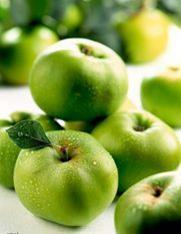
Sales of apples are growing over 10 percent in a year, according to market research company ACNielsen.
Of standard lines Granny Smiths are enjoying a sales revival with growth of 13 percent year on year - these now account for 9 percent of all apple sales in Britain with £57 million of sales in the latest year. Cox apples have also enjoyed growth (+20 percent) following a poor year in 2005.
Worth £43 million in the year to March 2007, sales have increased by over £7 million year on year. The overall market is now worth £610m.
Last year sales were flat, with standard variants in decline and only organic apples showing signs of growth, according to Nielsen. This year both organic (+10 percent) and standard lines (+11 percent) are performing well. Organic varieties now account for five percent of the market, worth £31 million.
Of the organic variants, Royal Gala apples are the most popular and in money terms, the fastest growing type with £12.6m sales in the year to March ’07. Organic Pink Lady and organic Fuji apples are also growing in popularity with sales of £1.8 million (+7 percent) and £1.3 million (+25 percent) respectively.
Not selling so well are standard cooking apples which have declined 7.4 percent to £19.7 million. Organic cooking apples are increasing in popularity but still represent a tiny segment of the market at £68,000.
“In the coming year I expect to see further increases in organic lines. Though in solid growth, organic apples have not yet reached their full potential and there is plenty of room for growth,” predicted Simon Cox, senior business development manager at ACNielsen.
The research comes as estimates released at Prognosfruit indicate that a 6.6m tonne apple crop is expected in western Europe, its lowest level for a decade and 6 percent lower than both the 2005 harvest and the 2002-2005 average harvest.
Combined with a predicted 2.95m tonne crop from the EU´s new member states, some 2 percent lower than in 2005 and 8 percent under the 2002-2005 average, the EU-25’s overall apple production for 2006 is set to stand at just 9.55m tonnes in 2006. This is 5 peRcent lower than last year´s production level, and 7 percent lower than Europe´s average haul in 2002-2005.



